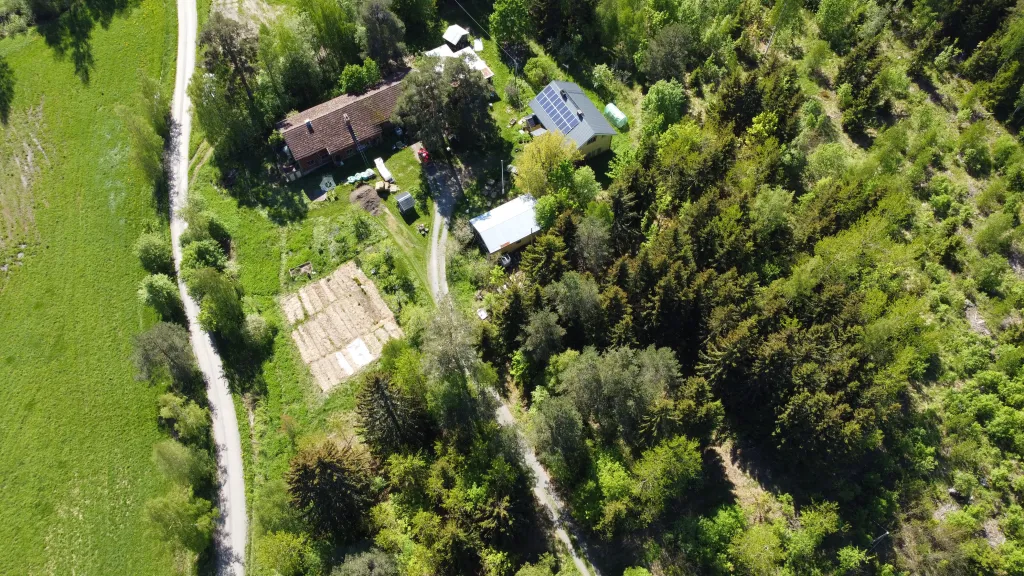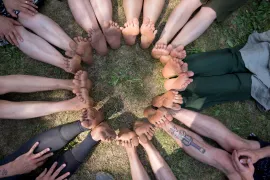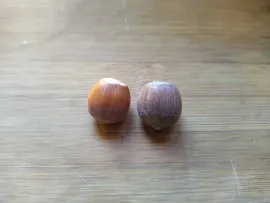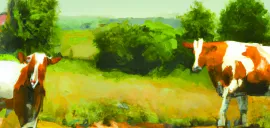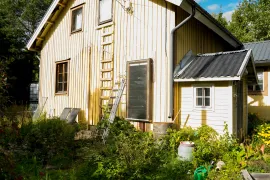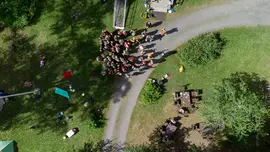Definition of permaculture
Permaculture is a design philosophy /methodology and set of practices that aim to create sustainable and self-sufficient human settlements and agricultural systems (and of course everything that is related to it). It is based on the principles of working with, rather than against, nature; maximizing efficiency and minimizing waste; and taking a holistic and integrated approach to design.
Permaculture practices include using diverse plant and animal species in mutually beneficial relationships, incorporating elements such as composting, water management, and natural building materials into designs, and minimizing the use of non-renewable resources. Permaculture can be applied to a wide range of contexts, including urban and rural settings, and is often used in agriculture, forestry, and land management.
Techniques and strategies
Some common techniques and strategies used in permaculture include:
- Plant guilds: Groupings of plants that have mutually beneficial relationships, such as a fruit tree surrounded by nitrogen-fixing plants, pest-deterring plants, and plants that attract beneficial insects.
- Polycultures: Planting a diverse mix of crops together, rather than a monoculture of a single crop, which can improve soil health, increase pest and disease resistance, and improve overall yield.
- Agroforestry: Integrating trees and shrubs into agricultural systems, often by planting trees and crops together in a way that maximizes their productivity and ecological benefits. Good example is the multistrata agroforestry - the food forest.
- Water harvesting and management: Capturing and storing rainwater and using it efficiently, through techniques such as swales, contour planting, and cisterns.
- Composting: Decomposing organic matter to create a nutrient-rich soil amendment that can be used to fertilize plants.
Permaculture has the potential to help create more sustainable and resilient communities and food systems, and is increasingly being adopted around the world as a way to address environmental and social challenges.
If you want to learn more about permaculture and permaculture education read on at https://nordicpermaculture.org
Articles tagged with Permaculture
The 2023 Permaculture Design Course
Teaching a PDC is a rewarding task. In June 2023 we hosted our second PDC at Beyond Buckthorns.
It's nuts - about growing nut trees in Finland
Over the past few years, nuts and food forests have become some of the trendiest topics in Finland. I'm quite fond of nuts.
Holy Shit - a journey into DIY Biogas - documentary is now live on Youtube
The US DIY biogas community thrives with numerous individual projects tackling the increasingly pressing subject of energy and food independence. "Holy Shit - A Journey into DIY Biogas" is a captivating documentary which portraits the world of… more
Growing Hazelnuts in Finland
Hazelnut bushes are lovely deciduous shrubs that are indigenous to Europe and Asia. They are part of the Corylus genus and can grow anywhere from 1.8 to 10 meters in height, depending on the type. These speedy growers usually have a lifespan of… more
People Care, a Manifesto, Part One
Is permaculture just a fancy name for ”cooler” organic gardening?
Heating with the sun - a solar air heater
Solar air heaters are passive solar element that can heat rooms during cold days while the sun is shining. Building one is a piece of cake
A taste of Nordic Permaculture – the Nordic Permaculture Festival 2022
In August 2022 the Nordic Permaculture Festival was held in Finland for the 2nd time. Venue was the Kurjen Ecovillage and Rautiala festive house in Vesilahti, close to Tampere.

